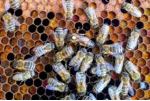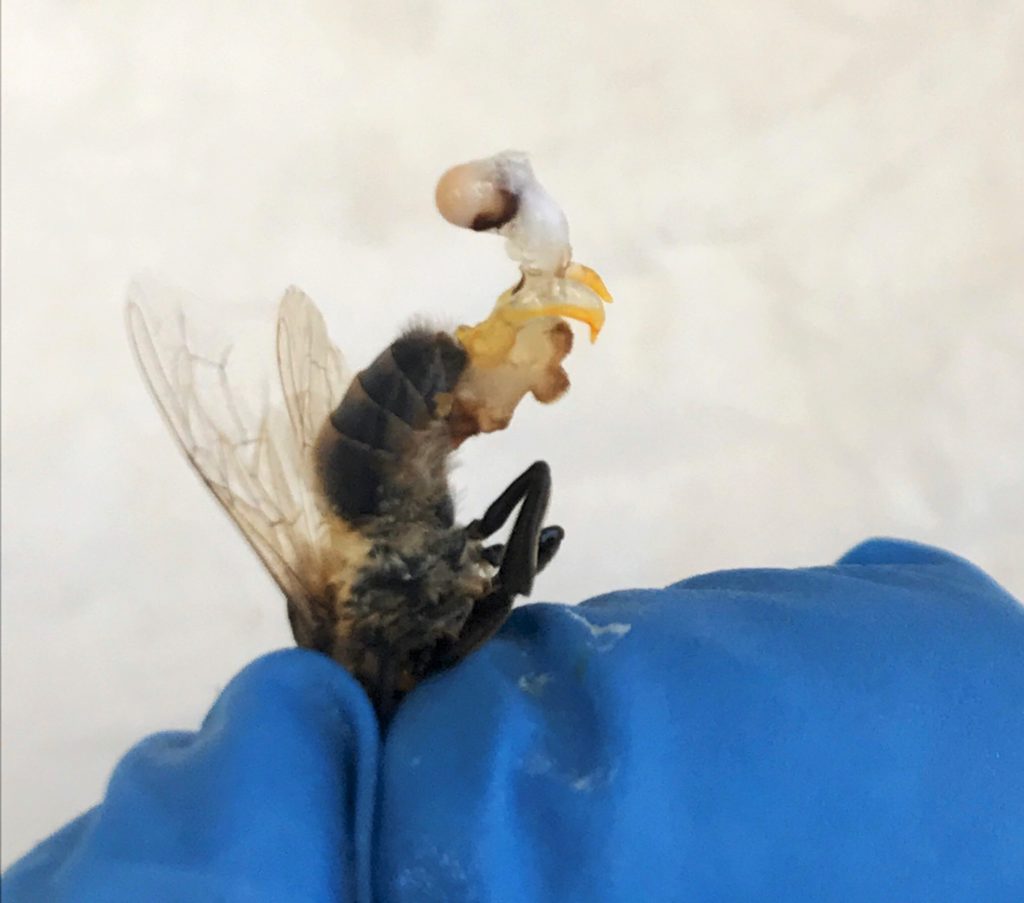2022-02-17 カナダ・ブリティッシュコロンビア大学(URC)
ドローンはメスの働き蜂よりも寒さや殺虫剤に敏感で、4℃の温度で2時間後に76%のドローンが死んでしまったのに対し、働き蜂はゼロだったそうです。しかし、研究者は驚くべきことも発見した。ドローンは働き蜂よりもストレスに対処するタンパク質が多いというのだ。

What’s the buzz?
UBC researchers, led by postdoctoral fellow Dr. Alison McAfee, investigated drones, male bees whose only role is to mate with a queen. We already know that drones can’t handle heat stress as well as worker bees, and in a new study, researchers tested their response to other stressors including cold and then analyzed the bees’ proteins.
How’d the males stack up?
They found drones are more sensitive to cold and pesticide than female worker bees, with 76 per cent of drones perishing after two hours at a temperature of 4 °C compared with zero worker bees. But the researchers also found something surprising: that drones have more stress-coping proteins than workers.
Not to drone on but…
Perhaps drones ‘hedge their bets’, creating proteins to protect from a wide array of mild stressors, depleting their protein resources left to deal with long-term or extreme stress. With bees contributing an estimated $4 to $5.5 billion a year to the Canadian economy, figuring out how to de-stress drones could be buzzworthy.
For more information, contact Alex Walls
ドローンミツバチは、ストレス応答タンパク質を高レベルで発現しているにもかかわらず、生物学的ストレス要因に対して不当に敏感である。 Drone honey bees are disproportionately sensitive to abiotic stressors despite expressing high levels of stress response proteins
Abstract
Drone honey bees (Apis mellifera) are the obligate sexual partners of queens, and the availability of healthy, high-quality drones directly affects a queen’s fertility and productivity. Yet, our understanding of how stressors affect adult drone fertility, survival, and physiology is presently limited. Here, we investigated sex biases in susceptibility to abiotic stressors (cold stress, topical imidacloprid exposure, and topical exposure to a realistic cocktail of pesticides). We found that drones (haploid males) were more sensitive to cold and imidacloprid exposure than workers (sterile, diploid females), but the cocktail was not toxic at the concentrations tested. We corroborated this lack of cocktail toxicity with in-hive exposures via pollen feeding. We then used quantitative proteomics to investigate protein expression profiles in the hemolymph of topically exposed workers and drones, and found that 34 proteins were differentially expressed in exposed drones relative to controls, but none were differentially expressed in exposed workers. Contrary to our hypothesis, we show that drones express surprisingly high baseline levels of putative stress response proteins relative to workers. This suggests that drones’ stress tolerance systems are fundamentally rewired relative to workers, and susceptibility to stress depends on more than simply gene dose or allelic diversity.


